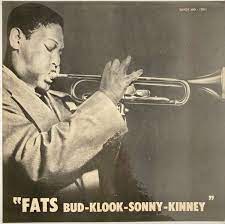
Daily Dose Of Jazz…
Alfred Wesley Hall was born on March 18, 1915 and grew up in Philadelphia, Pennsylvania. He played cello and tuba early in life before settling on bass at the age of 17. Moving to New York in 1936, Al played at different times through and into the Forties with Billy Hicks, Skeets Tolbert, and Teddy Wilson in both big band and small ensemble format.
Following time with Ellis Larkins and Mary Lou Williams, Hall took a job as a staff musician at CBS, working in Paul Baron’s orchestra on the Mildred Bailey Show. He also worked in Broadway theater pit orchestras for the next several decades. In 1946, he founded his own label, Wax Records, which was bought by Atlantic Records in 1949. He led five numbers on his own label in the mid Forties and four on Columbia Records Europe in 1959.
Hall had an extended partnership with Erroll Garner, playing with him intermittently from 1945 to 1963. He also played later in life with Benny Goodman in 1966, Hazel Scott, Tiny Grimes, and Alberta Hunter from 1977 to 1978, and Doc Cheatham. He recorded with Helen Merrill, Paul Quinichette, Duke Ellington, Harold Ashby, Eddie Condon, Della Reese, Teddy Wilson and numerous others.
Double bassist Al Hall, who recorded thirty albums as a sideman but none as a leader, transitioned on January 18, 1988.
More Posts: bass,history,instrumental,jazz,music
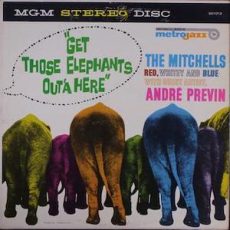
Daily Dose Of Jazz…
Gordon “Whitey” Mitchell was born on February 22, 1932 in Hackensack, New Jersey. He began on clarinet and tuba as a youngster before choosing bass as his primary instrument. He studied radio & television at Syracuse University and then plunged into the New York jazz scene, becoming a regular at the famed nightspots Birdland and Basin Street East.
He led his own groups at The Village Vanguard and The Embers and later toured with big band greats Benny Goodman and Pete Rugolo, played Carnegie Hall with Gene Krupa, appeared with Buddy Rich, Ella Fitzgerald, Dizzy Gillespie and Lester Young on Jazz At The Philharmonic.
In the early 1950s he played with Elinor Sherry and Shep Fields before serving in the Army during the Korean War. From 1954 he worked freelance in New York City, playing with Gene Krupa, Mel Tormé, Jack Jones, J.J. Johnson, Kai Winding, Lester Young, Charlie Ventura, Herbie Mann, Betty Roche, Oscar Pettiford, Gene Quill, Joe Puma, Johnny Richards, Peter Appleyard, André Previn, Benny Goodman, and again with Rugolo.
He performed on hundreds of recording sessions, television and film scores but only released one album under his own leadership on ABC-Paramount in 1956, and one with his brother Red and Blue Mitchell in 1958 as The Mitchells: Red, Whitey & Blue, released on MetroJazz Records. Whitey recorded with Anita O’Day, Barbra Streisand, Anthony Newley, and played the bass solo introduction on Ben E. King’s hit record Stand By Me.
After 1965 he largely ceased playing jazz and moved to Hollywood, California on advice from Lenny Bruce and André Previn to pursue a career as a television writer. He worked on shows such as Get Smart, All In the Family, The Jeffersons, Good Times, The Mary Tyler Moore Show, The Odd Couple, Mork and Mindy, and several Bob Hope television specials. He wrote the feature film Private Resort starring Johnny Depp.
As an educator he taught screenwriting at UCLA and UC Riverside. In 1995 he had his own radio show, The Power Lunch and wrote a golf column for a local magazine. He recorded his CD Just In Time and played jazz in all the nightclub venues. He was the author of two books, Hackensack to Hollywood: My Two Show Business Careers and Star Walk: A Guide to the Palm Springs Walk of Stars.
Bassist and television writer/producer Whitey Mitchell, who often placed in the Metronome and Downbeat jazz polls, transitioned on January 16, 2009.
More Posts: bandleader,bass,history,instrumental,jazz,music
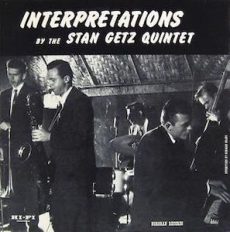
Daily Dose Of Jazz…
Frank Isola was born on February 20, 1925 in Detroit, Michigan and was heavily influenced by Gene Krupa. He played in the U.S. military during World War II and then studied and performed in California with Bobby Sherwood and Earle Spencer.
Moving to New York City he played with Johnny Bothwell and Elliot Lawrence in 1947. Following this, in the Fifties Frank played with Stan Getz and Gerry Mulligan, as well as with Mose Allison, Eddie Bert, Bob Brookmeyer, Jimmy Raney, Johnny Williams and Tony Fruscella.
By the late 1950s Isola returned to Detroit and kept working periodically with local bands or in jam sessions but well out of the spotlight. He was active in the Cass Corridor area of Detroit in the 1970s playing jazz standards with pianist Bobby McDonald and others at Cobb’s Corner Bar.
He worked as a drummer briefly at Captain Hornblower’s in Key West, Florida in the late 1980s with pianist Johnny Williams. By the early Nineties, he moved back north and was playing weekly at Tom’s Steamer’s Bar in Grosse Pointe, Michigan. In 1994 and 1995 Isola played at The Windsor Jazz Festival in Ontario, Canada backing Franz Jackson and Marcus Belgrave. The 1994 concert was released on Parkwood Records as Live at Windsor Jazz Festival III with Jackson and Belgrave as co-leaders.
He recorded fourteen albums between 1954 and 1981 with Getz, Mulligan, Mose Allison, Bob Brookmeyer, Dick Garcia, Franz Jackson, Charlie Parker and Bob Szajner. Drummer Frank Isola, who never led a recording session, transitioned on December 12, 2004.
More Posts: drums,history,instrumental,jazz,music
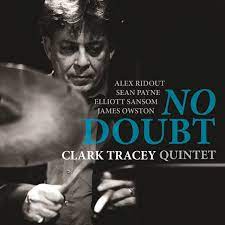
Daily Dose Of Jazz…
Clark Tracey was born February 5, 1961 in London, England and began his music journey playing piano and vibraphone before switching to drums at age 13, studying under Bryan Spring. He played in several ensembles with his father Stan Tracey including a quartet called Fathers and Sons with John and Alec Dankworth in the 1990s. In addition to his work with his father, which took him around the world, he has played with numerous visiting American musicians, notably Bud Shank, Johnny Griffin, Red Rodney, Sal Nistico, Conte Candoli, Barney Kessell, John Hicks and Pharoah Sanders throughout his career.
Through the 1980s Clark performed and recorded with Buddy DeFranco, Martin Taylor, Charlie Rouse, Alan Skidmore and Tommy Smith. The Nineties saw him with Claire Martin into the new century. During the decade and beyond he led his own ensembles with a host of recognized names like Django Bates, Nigel Hitchcock and Jamie Talbot. Concentrating on promoting the music of his late father, his final group under his own name included Mark Armstrong, Tom Ridout, James Wade Sired, Gareth Williams and James Owston.
Drummer, band leader, and composer Clark Tracey, has received several honors and was awarded the British Empire Medal (BEM) in the 2019 Birthday Honours for services to music and the promotion of jazz. He continues to pursue excellence in the genre.
More Posts: bandleader,composer,drums,history,instrumental,jazz,music
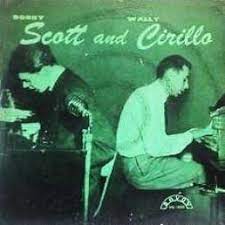
Daily Dose Of Jazz…
Wally Cirillo was born Wallace Joseph Cirillo on February 4, 1927 in Huntington, New York. He studied at the New York Conservatory of Modern Music and the Manhattan School of Music, and played with Chubby Jackson and Bill Harris in the early 1950s.
In 1954 he began working with John LaPorta, Teo Macero and Charles Mingus as part of the New York Jazz Composers Workshop. The following year, he led a session with Mingus, Macero, and Kenny Clarke, which was later reissued under Mingus’s name as Jazz Composers Workshop. The piece Transeason on this album was composed by Cirillo, makes use of serialism, one of the earliest manifestations of this compositional technique in jazz. He also recorded with LaPorta and with Johnny Mathis in the 1950s.
Cirillo relocated to Florida in 1961, where he led his own band and worked with Phil Napoleon, Flip Phillips, Ira Sullivan, and Joe Diorio. He recorded sparsely throughout his career.
Pianist and composer Wally Cirillo transitioned on May 5, 1977 in Boca Raton, Florida.
More Posts: bandleader,composer,history,instrumental,jazz,music,piano



